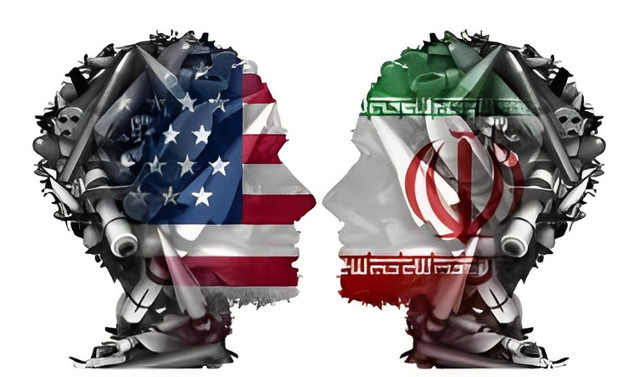Tentang KamiPedoman Media SiberKetentuan & Kebijakan PrivasiPanduan KomunitasPeringkat PenulisCara Menulis di kumparanInformasi Kerja SamaBantuanIklanKarir
2025 © PT Dynamo Media Network
Version 1.102.2
Konten dari Pengguna
Escalating Tensions Between the United States and Iran Amid Nuclear Standoff
5 April 2025 11:48 WIB
·
waktu baca 3 menitTulisan dari Husen Muhammad tidak mewakili pandangan dari redaksi kumparan

ADVERTISEMENT
Escalating Tensions between the United States and Iran are escalating as negotiations over Tehran's nuclear program remain at an impasse, with Trump cautioning that military intervention is still an option if an agreement is not secured by his set deadline. According to U.S. officials, the United States is pushing for direct negotiations with Iran on nuclear issues, as the Trump administration aims to achieve its ambitious objective of dismantling Tehran’s nuclear program.
ADVERTISEMENT
The persistent stalemate increases the likelihood of a direct confrontation between the United States and Iran in the already volatile Middle East, where a U.S. aircraft carrier strike group is spearheading military operations against Houthi militants in Yemen.
Trump has also issued warnings to Tehran regarding any backing of the Iran-affiliated Houthi rebels in Yemen, who have renewed their military assistance to Palestinians by launching attacks on Israel following its blockade of aid and the subsequent resumption of its war in Gaza. President Donald Trump warned on Sunday that the U.S. would carry out military strikes against Iran if Tehran refuses to engage in negotiations with Washington regarding limitations on its nuclear program. His statement followed Iran’s foreign minister rejecting the possibility of direct discussions between the two nations.
ADVERTISEMENT
Iran has consistently stated that it will not participate in nuclear talks with the U.S. while facing "maximum pressure and military threats." During his first presidential term, Trump withdrew from the Iran nuclear deal formally known as the Joint Comprehensive Plan of Action (JCPOA) which had been established under Barack Obama. The agreement had eased sanctions on Iran in return for stricter regulations on its nuclear activities. However, Iran later abandoned its commitments under the JCPOA and advanced its nuclear program.
Although Tehran insists its nuclear activities are solely for peaceful purposes, the U.N.’s nuclear watchdog has raised concerns that Iran has significantly increased its uranium enrichment, reaching levels dangerously close to those required for nuclear weapon production. The Trump administration, along with its key regional ally Israel, has consistently maintained that Iran must not acquire nuclear weapons. Despite Trump’s "maximum pressure" strategy aimed at curbing Iran’s nuclear ambitions, Tehran has firmly refused direct negotiations with Washington, insisting that its nuclear program is solely for peaceful, civilian purposes.
ADVERTISEMENT
Iran has strengthened its military capabilities and displayed strong political support through joint naval drills with Russia and China in the Persian Gulf. It has also demonstrated its military power by revealing underground "missile cities" and conducting missile tests. Meanwhile, Russia has cautioned that any external attempts to strike Iran’s nuclear energy facilities would have serious repercussions in the region, emphasizing the need for diplomatic resolutions.
The escalating tensions between the United States and Iran highlight the complexities of international relations, particularly in the realm of nuclear diplomacy and regional security. The persistent deadlock in negotiations, combined with the U.S. administration’s "maximum pressure" strategy, has only deepened hostilities, increasing the risk of military confrontation. Iran’s alliances with Russia and China, as well as its expanding military capabilities, further complicate the situation, making unilateral actions by the U.S. less effective. From a student perspective, this conflict underscores the importance of diplomatic engagement over military threats, as history has shown that forceful interventions often lead to prolonged instability rather than sustainable solutions. A multilateral approach involving key global stakeholders may be the best path forward to prevent further escalation and ensure long-term peace and security in the region.
ADVERTISEMENT
Author: Muhammad Husen, International Relations Student, Tanjungpura University, Pontianak

